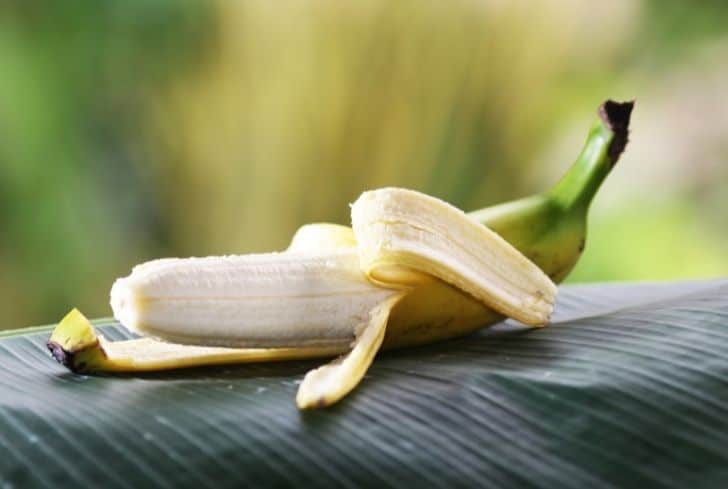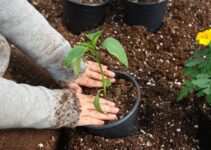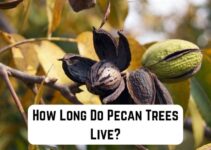Remember the periodic table back in chemistry class? What was atomic number 19? You probably might not remember it, but it was actually potassium. The metal reacts rapidly with atmospheric oxygen forming the flaky white potassium peroxide within seconds. Potassium is vital to human health and its deficiency can result in certain health conditions.
Perhaps there is no better source of potassium than bananas. Bananas are among the most important food crops on the planet, being a healthy source of fiber, potassium, vitamin B6, vitamin C, and various antioxidants and phytonutrients. So, aside from eating them, what else can you do with bananas? Can you make your garden better using bananas? This article tries to answer this question by understanding if bananas are compostable.
Can You Put Banana Peels in Compost?
Without question, banana peels are compostable. Composting banana peels is as easy as simply tossing your leftover banana peels into the compost. You have the option of tossing them in whole or chopping them into smaller pieces.
However, be aware that they will take longer to compost if they are thrown in whole. Cutting them into smaller pieces speeds up the composting process and ensures they wholly decompose. You also have the option of using the banana peel directly as fertilizer and it will not harm your crops.
However, composting them is easy and ensures you have a better outcome. For a banana peel to properly and effectively decompose, it needs adequate air. This is why buries banana peels, directly used as fertilizer will break down more slowly than those placed inside a compost. The compost needs to be properly aerated as well as turned.
Putting banana peels in your compost pile will help add potassium, sulfur, calcium, sodium, magnesium, and phosphates to your compost and ultimately your garden. All these elements are important to the healthy growth of both flowering and fruiting plants.
Bananas in compost also help add healthy organic material, which helps the compost retain water and make the soil lighter when added to your garden. In addition to this, banana peels will break down quickly in compost, which allows them to add these important nutrients to the compost much more quickly than some other compost materials. Composting banana peels is very easy and requires less attention than when composting food scraps.
Fruit waste, such as bananas and their peels, average 35 parts carbon to 1 part nitrogen, so they are quite close to the recommended ratio on their own. You only need to add a few grass clippings, which average 20 to 1, and you will have created a nice balance.
Also, do not forget to keep the pile moist and your banana peels will decompose within a couple of weeks. You can also make banana peel compost tea before composting the peels, which is also helpful in the garden. You only need to cut the peels into small pieces and add them to water.
When your jar is full, strain the liquid and store it in the fridge until you are ready to use it. Then, mix a cup of tea into a gallon of water and water the base of your plants to add the nutrients directly to the plants. The solution can be used as aphid control by mixing the tea at a ratio of 1 part tea to 5 parts water and spray it on your plants.
Can You Compost Bananas?
Definitely, bananas are compostable. Bananas are a suitable compost material, that breaks down within the compost to provide a nutrient-rich additive for garden soil. Like other fruit and vegetable matter, the smaller the banana pieces, the faster they will break down within the compost.
A full-sized banana, like the peel, can take up to 3 or 4 weeks to fully decompose. Whether you compost with the help of worms via vermicomposting or through traditional compost, which gets hot as materials break down outdoors, bananas will break down in the process, adding nitrogen to the compost.
Remember, airflow is crucial to the whole process, therefore, remember to turn the compost or at least poke holes in it from time to time.
To effectively compost bananas, use a composting bin or a corner on your compound, where you can create a pile. Cut the bananas and/or their peels using a kitchen knife into small pieces, the largest being two inches. Group the peels, skin and unused banana fruit together with other vegetable parts from your meals.
Add them to your compost pile or composting bin. Fruit and vegetable scraps, including bananas, are considered “green” matter as they contribute nitrogen to the composting process. You, therefore, need to add brown matter as together, heat builds, a reaction is achieved, the organic materials break down and compost is achieved.
The brown and green matter should be layered. Continue adding produce, including more bananas or banana peels and be sure to add some water to the pile. Turn the compost every week, aerate the compost and wait for your final compost in a few weeks.
Do Bananas Decompose?
Certainly. Bananas are organic and biodegradable foods that can decompose, whether left out in the open or if composted. Banana peels can take up to 2 years to fully decompose when just left out in open, but the soft and fleshy part of the bruit itself will take considerably shorter.
If in the compost, the peels take about 3 – 4 weeks, and again the fleshy part will take a shorter period before fully decomposing. However, be sure not to discard the bananas anyhow and expect them to decompose. They might attract animals, whether at home or in the wild, who will look for the fruit and eat it.
Bananas are unique in that they have a ‘circle of life’ where you can compost bananas and grow others using the same compost. It all goes back to how you plant a banana. To do so, simply dig a circular pit, about two meters wide and one meter deep.
Take the soil you have removed and mound it around the pit. This is where you will plant your bananas, and the pit is where you will create a new compost pile. You can also plant other crops, exemplifying the principles of permaculture.
Bananas require a lot of nutrients and water and planting them around the pit where you have composted others will ensure they will flourish. If you choose to grow bananas this way, you will rest easy knowing that your method of growing food is smarter, kinder to the plant in comparison to how industrial agriculture does it and ensures continuity as long as the bananas will be in your garden.
How Long Does It Take for Banana Peel to Compost?
Composting banana peels should take about 3 to 4 weeks if the conditions are ideal. When you add worms through traditional compost or vermicompost, the bin will get hot during the process and the bananas will break down easily over this said time frame.
Another reason why banana peels can decompose quite easily is if they were cut into smaller pieces before being dumped into the compost.
If they were not, the process will take quite a longer duration. The process also requires air, and this means if the composting bin was aerated properly, it will take quite a short time for the peels to decompose.
However, if you were not rotating your composter from time to time, the decomposition process will take longer. Aerating the compost makes the microbes happy with the constant supply of oxygen. Therefore, turn the composter, or poke holes in the composter, to ensure it is properly aerated.
For the record, a whole banana peel, left on the ground, may take months and even up to 2 years before it breaks down completely. In landfills, banana peels take between 2 and 5 weeks before fully decomposing.
Can You Compost Rotten Bananas?
Oh, yes! Rotten banana should definitely end up in the compost. Composting provides a controlled environment where matter can break down, rot or decompose, into a rich compost that can then be applied to the garden and add nutrients to plants.
Rotting or rotten bananas are halfway there. They have already started the decomposing process and should be added to the composting bin so that they proceed there and offer more benefits. However, make sure you understand the reason for the rotting.
If it was natural and because the banana had overripened and started to rot, well, feel free to add it to the compost. However, if the rotting is because of a disease that had affected the banana, do not add it to the compost. This is because the disease might not be completely dead and continue to thrive, being passed on to the garden and on to other crops.
Be sure to cut the banana or banana peels into small pieces to hasten the decomposition process. Also, do not forget that a rotten food scrap has the capability of attracting pests like rats. The pests will feast on your rotten banana, and you will have nothing for your compost.
Worms can eat banana peels and bananas, but cannot attempt to eat them when they are fresh. Before worms can eat anything, it has to, first, go moldy and second, begin to rot.
A rotten banana is, therefore, best for these worms inside the composting bin. When the banana peels have achieved fully rotten status, worms will eat them with absolute ease. We might dislike the rotting bananas and banana peels, but other plants enjoy them.
Can You Compost Banana Leaves?
Definitely. In fact, banana leaves are one of the easiest parts to compost. Banana leaves are obviously green material and are a suitable addition to the composting bin. They break down within the compost to provide a nutrient-rich additive for garden soil.
Like the fruit and the peel, banana leaves are also an excellent source of potassium and can pass on the potassium to the compost, garden and ultimately to other crops.
Not only are the leaves and the fruit compostable, but also the entire banana plant. They are an excellent addition to compost, offering various nutrients, especially potassium and calcium.
All you need is to chop or hack the leaves and the plant into small pieces. You can use a machete or a chaff cutter for this process, before adding the pieces to the compost.
However, be careful not to stain your clothes with the juices from the banana leaves and stem. The stains are dangerous as once they set on your clothes, they are stuck there for good. If this does not fit your bill, leave the leaves in the hot sun to dry and then chop them before adding them to the compost.
This time around, they will be dried and might offer different needs to the compost than when they were fresh and green. nevertheless, they are organic crops and can be composted alone without the need for other materials. So, do not worry about composting the banana leaves; go ahead and do it!






